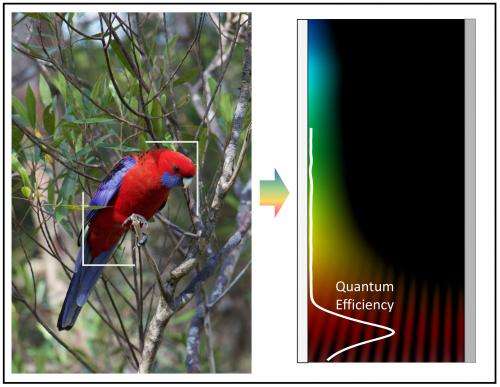New sensor design reveals path to innovative imaging technologies

Researchers at The University of Queensland are a step closer to designing a seamlessly-integrated and more affordable image sensor that would recognise colours much like the human eye does.
Their innovative approach has opened the field of image sensing to a number of potential new-generation applications in technologies such as medical imaging, robotics and intelligent surveillance.
Lead author and postdoctoral research fellow Mr Ardalan Armin, from UQ's Centre for Organic Photonics & Electronics (COPE), said the image sensor uses organic plastic semiconductors, rather than conventional inorganic silicon semiconductors to absorb light.
"Key to the image sensor technology that we have developed is that it eliminates the need for a colour filter system, which other technologies using silicon require," Mr Armin said.
"This technology is particularly important for use in outdoor settings as colour filters are unable to cope under situations with extreme light conditions."
"What sets our design apart from other research in organic semiconductors for imaging technologies is that the desired colour can be chosen by adjusting the thickness of the light-absorbing layer of the sensor."
Co-author Professor Paul Meredith, also from COPE, said that the organic light-absorbing layers of these new image sensors are inherently able to operate on large and flexible surfaces.
"By reducing their design complexity, these sensors can lead to simpler and cheaper device structures in future," Professor Meredith said.
The new design enables the sensors to outperform conventional silicon image sensors over a range of metrics, including the ability to cope with larger light extremes (or the dynamic range), the image sensitivity, the capacity to rapidly respond to light signals, and the ability to select and sense particular colours.
More information: "Narrowband light detection via internal quantum efficiency manipulation of organic photodiodes" Nature Communications 6, Article number: 6343 DOI: 10.1038/ncomms7343
Journal information: Nature Communications
Provided by University of Queensland
















